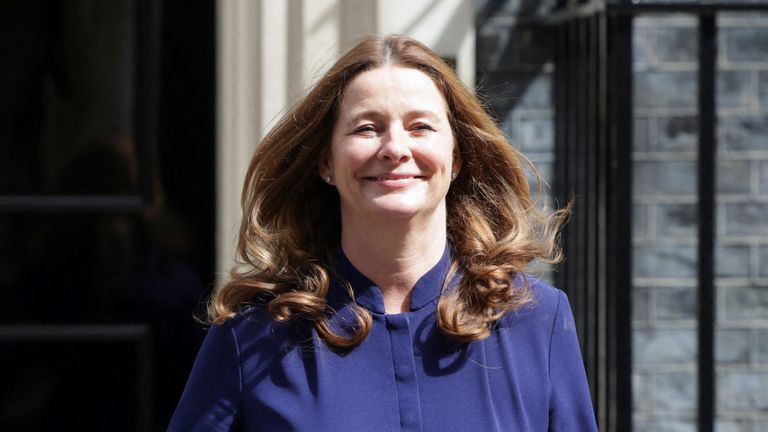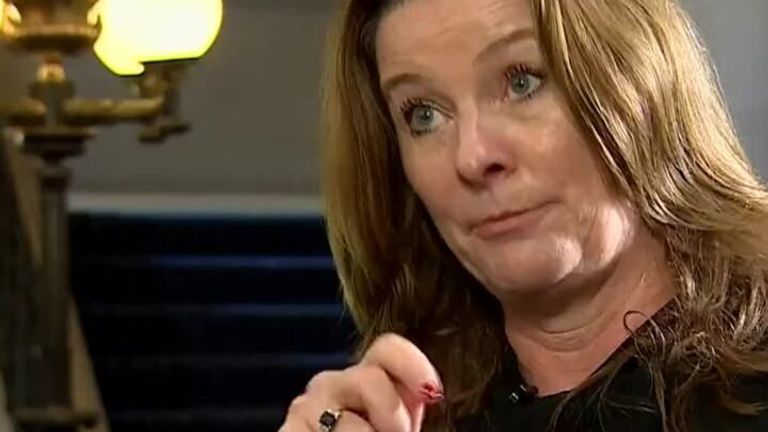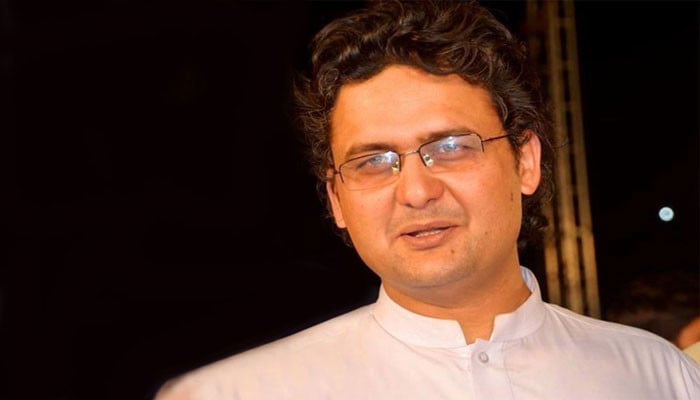[ad_1]
Rishi Sunak has backed Gillian Keegan’s handling of the schools concrete crisis after she was accused of opening up a “Pandora’s box” by taking unilateral decisions on the issue.
The prime minister said the Department for Education (DfE) had acted “exactly correctly” upon learning that more than a hundred schools were affected by the presence of collapse-prone reinforced autoclaved aerated concrete (RAAC).
In total 147 schools have been identified as containing RAAC after the government responded to demands from the Opposition to publish the full list.
The start of term has been delayed at 19 schools – responsible for 11,150 pupils – while four schools with a total of 2,938 pupils have also had to return to remote learning, with the rest having to resort to a mix of remote learning and face-to-face tuition.
Speaking to reporters while on a trip to the G20 summit in Delhi, Mr Sunak said the action taken by the government “will ensure the safety of children and these buildings”.
PM says deal with India not a ‘given’ at G20 summit – politics latest
“We’re providing lots of support to schools so that we can mitigate these things as quickly as possible, minimise the disruption of children’s education,” he said.
“But the professional advice from the independent bodies on RAAC remains as it is. Departments individually will follow that advice as it relates to their particular estate.”
Mr Sunak’s defence comes after Sky News revealed that Ms Keegan had come under fire from colleagues for her “unilateral” decision to determine which school buildings needed to close following RAAC concerns.
Ministers in Whitehall fear she has opened a “Pandora’s box” by setting a more cautious than necessary standard that could affect a huge array of public buildings, including housing stock, local authority buildings and the military estate.
The education secretary has made clear she took the most cautious of the options presented by officials over which buildings to shut last week.
Sky News understands that the decision was signed off by the education team in Number 10 with the prime minister’s knowledge.
However, there was no Cabinet Office meeting and no ministerial follow-up for days after the issue emerged. The Department for Education “belatedly” shared the technical advice on why they shut schools with others in Whitehall – some of whom disagree it shows a need to shut schools.
Sky News understands she “informed” the relevant Whitehall committees, which have been dealing with the issue of crumbling concrete for years. However, she did not fully consult or secure an agreement for her move.
“This is suboptimal,” said a senior Whitehall figure. “She has made a unilateral decision. It’s not been resolved, and it’s a bit of a mess.”
The unravelling of the RAAC crisis coincided with parliament returning from the summer recess – creating a fresh headache for Mr Sunak.
At Prime Minister’s Questions on Wednesday, Sir Keir Starmer said cowboys were “running the country” as he criticised the Tories over the crisis unfolding in England’s schools.
The Labour leader said school closures as a result of unsafe concrete were an “inevitable result of 13 years of cutting corners and sticking plaster politics”.
The government has faced criticism for attempting to shift the blame after Ms Keegan bemoaned that she had not been thanked for doing a “f*****g good job” while other people had been “sat on their arses” in a sweary outburst that she later apologised for.
Read more:
Education secretary ‘didn’t know’ about £32m spending on office refurbishment
List of schools in England affected by unsafe concrete published
She later told school leaders to “get off their backsides” and fill out a survey informing ministers of whether their buildings contained RAAC.
Elsewhere, Mr Sunak addressed fears about hospitals that had been built with RAAC, saying the NHS had been looking at the issue “for years” and had a £700m mitigation programme in place.
“We’ve already moved seven hospitals that are particularly affected into the new hospital programme,” he said.
“They will be all sorted by 2030. Each department will have its own particular way of dealing with it and following the technical guidance that is there.
“The chancellor has been very clear that we will provide the funding for schools for these mitigations.”
[ad_2]
Source link














































